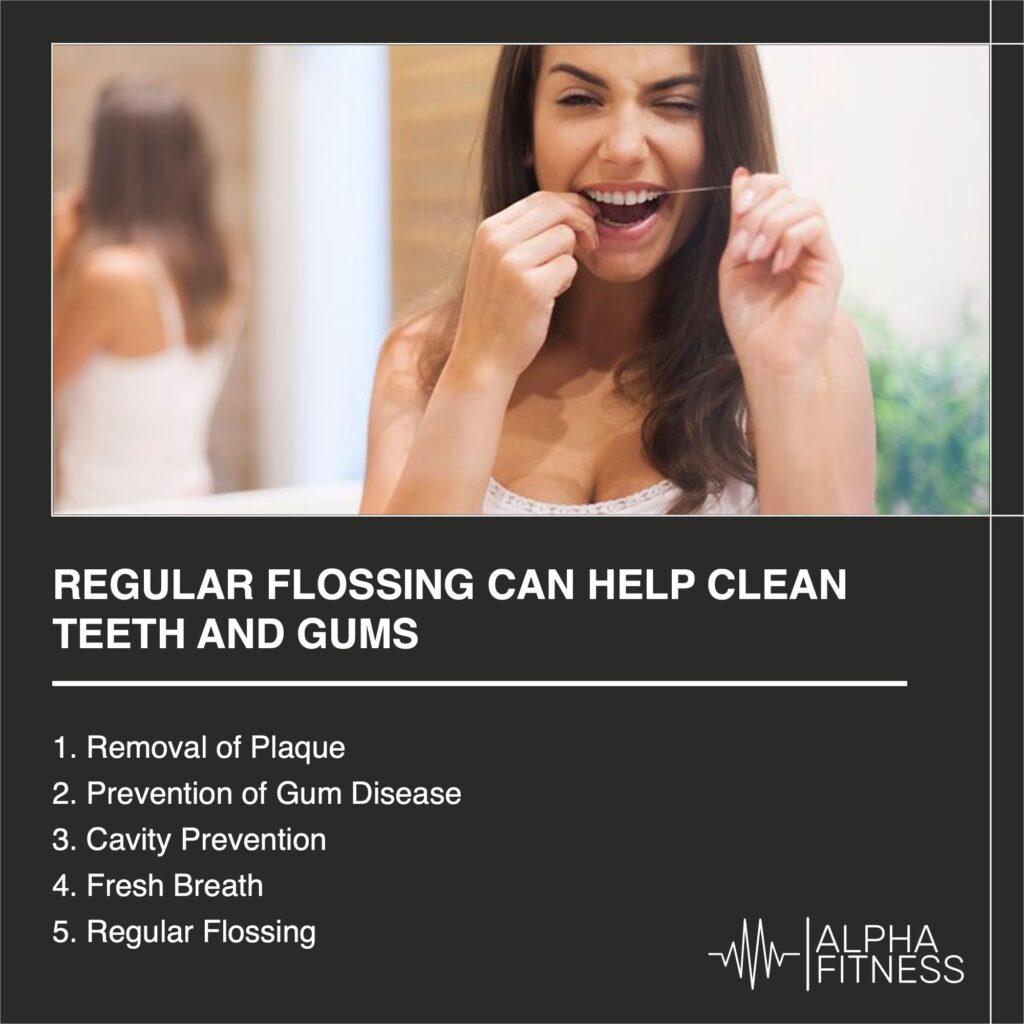
Yes, regular flossing is an essential part of maintaining good oral hygiene and can help clean teeth and gums effectively. Flossing helps remove food particles and plaque from between the teeth and along the gumline, where toothbrushes may not reach as effectively. Here are some key benefits of regular flossing:
Removal of Plaque: Plaque is a sticky film of bacteria that forms on your teeth. Flossing can help remove plaque from the areas where your toothbrush may not reach, preventing it from hardening into tartar, which can lead to cavities and gum disease.
Prevention of Gum Disease: Flossing helps to prevent gum disease, such as gingivitis and periodontitis, by removing plaque and food debris that can irritate and inflame the gums. Healthy gums are an essential part of maintaining oral health.
Cavity Prevention: Flossing can remove food particles and plaque between teeth, reducing the risk of cavities in these areas.
Fresh Breath: By removing food particles and bacteria from hard-to-reach areas, flossing can contribute to fresher breath.
Regular Flossing: Floss at least once a day, ideally before brushing your teeth. Flossing before bedtime can be especially effective in removing food particles and plaque that accumulate throughout the day.
To floss effectively:
Select the Right Floss: There are different types of dental floss available, such as waxed and unwaxed, flavored or unflavored, and even floss picks. Choose the type that you find most comfortable to use.
Use Enough Floss: Take about 18 inches (45 cm) of floss and wrap the ends around your middle fingers, leaving a few inches to work with.
Gentle Technique: Gently slide the floss between your teeth, curving it around each tooth in a “C” shape, rather than snapping or forcing it down. Be cautious to avoid damaging your gums.
Clean Between Each Tooth: Use a clean section of floss for each tooth, moving from one tooth to the next. This prevents the transfer of bacteria or food particles.
Gumline Care: Be gentle when flossing near the gumline to avoid causing damage or bleeding. If you experience bleeding when you first start flossing regularly, it may be a sign of gum inflammation (gingivitis), which can improve with consistent flossing and good oral hygiene.
Below is a list of useful links:
- Consume calcium can strong enamel
- Chewing apples can fight cavities
- Charcoal Toothpaste: Is It a Safe Way to Whiten Your Teeth?
- Is the use of cloves can reduce bad breath?
- Milk helps strengthen teeth
Remember that while flossing is a vital component of oral care, it should be combined with regular brushing, a balanced diet, and routine dental check-ups for optimal oral health. If you have any specific dental concerns or questions, it’s a good idea to consult with a dentist or dental hygienist for personalized advice and recommendations.



